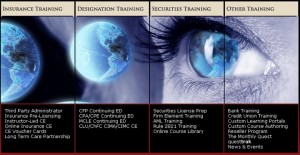The deteriorating state of the economy should lead borrowers to review their finances as a matter of urgency, say debt experts Debt Advisers Direct, following the Autumn forecast from the Ernst & Young ITEM Club.
“Released on 20th October, the Ernst & Young ITEM Club Autumn forecast ‘sees an economy that has deteriorated dramatically in the last quarter and is now in recession’,†said a spokesperson for Debt Advisers Direct. “The good news, however, is that the recession is expected to be both short and shallow, with GDP rising – even if only by 1% – in 2010.â€
“Even so, the impact of today’s economic downturn will be profound,†the spokesperson continued. “By definition, even a ‘shallow’ recession involves a shrinking of the nation’s economy, with the inevitable consequences: lower spending, higher unemployment, greater uncertainty about the future, etc.
 “On an individual level, the threat of a reduced monthly income is likely to lead many to review their financial situation. This isn’t to say that economic gloom is a good thing, but everyone needs to stop and take stock of their finances from time to time, and reports such as this can provide a much-needed incentive to do so.
“On an individual level, the threat of a reduced monthly income is likely to lead many to review their financial situation. This isn’t to say that economic gloom is a good thing, but everyone needs to stop and take stock of their finances from time to time, and reports such as this can provide a much-needed incentive to do so.
“It’s important for everyone – even people with no debts and significant savings – but for the millions of UK consumers in debt, it’s particularly vital. Many people in the UK have grown used to spending more and more of their monthly budget on debt repayments. In many cases, those repayments take up almost their entire disposable income, so if anything happens to their income, they could almost immediately face a whole range of consequences, from legal action to bailiffs and County Court Judgments (CCJs) – to say nothing of the damage to their credit rating.
“The important thing, of course, is to take action before it’s too late. Seeking professional debt advice is normally the best way to start – any borrower could have a wide range of debt solutions available to them, so it’s vital they talk to a professional organisation which understands every option and can provide impartial debt advice, tailored to their individual circumstances.â€
An Individual Voluntary Arrangement (IVA) or debt consolidation loan, for example, could help someone cope with a reduced income – yet neither debt solution would make sense for someone who’s fairly sure they might lose their income (or a significant part of it) in the near future.
“A borrower who is working, but whose job seems to be at risk, may be better off with a flexible debt solution such as a debt management plan: if their income drops, they can ask a professional debt management company to talk to their creditors on their behalf, renegotiating their debt repayments as and when it becomes necessary.â€
Different borrowers, in other words, will need to adopt different strategies to deal with their debts. “There’s no ‘silver bullet’ for debt. Debt management plans, debt consolidation loans, debt consolidation remortgages, IVAs, even bankruptcy – each has its place, but the debt solution that’s right for one person can be completely inappropriate for another. The key thing is to take the time to get the right debt advice before making any commitments.â€
Via EPR Network
More Financial press releases












 A number of lenders announced cuts to their mortgage rates following the base rate announcement – which may come as a relief to prospective homeowners or existing homeowners looking to remortgage, following many lenders’ reluctance to respond to the last base rate drop.
A number of lenders announced cuts to their mortgage rates following the base rate announcement – which may come as a relief to prospective homeowners or existing homeowners looking to remortgage, following many lenders’ reluctance to respond to the last base rate drop.




 “Some may be tempted to keep a close eye on their bank’s finances, waiting to withdraw all their money at the first sign of trouble,†said a spokesperson for the debt management company. “Of course it’s vital to protect your investments, but it’s also important to understand the extent of the protection offered to normal savers.â€
“Some may be tempted to keep a close eye on their bank’s finances, waiting to withdraw all their money at the first sign of trouble,†said a spokesperson for the debt management company. “Of course it’s vital to protect your investments, but it’s also important to understand the extent of the protection offered to normal savers.â€


